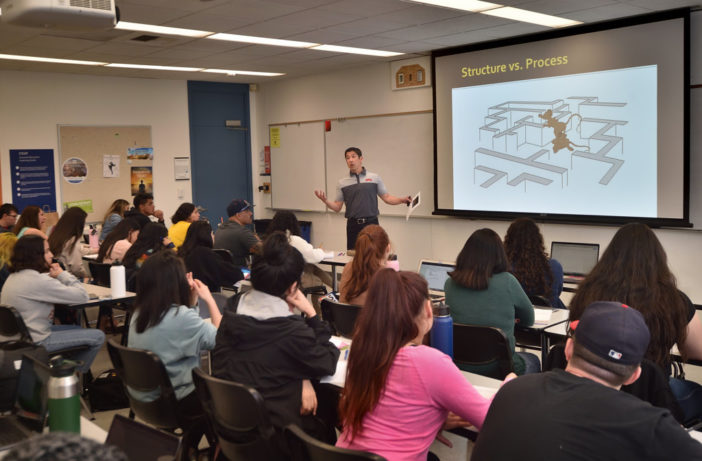A bill introduced this past week would make it a mandatory qualification for police officers to be 25 years of age or have a bachelor’s degree.
According to California Assemblyman Reggie Jones-Sawyer, who introduced the bill, the bill is based upon data-supported research showing college educated police officers use force less often and other neurological research showing the decision-making portion of the human brain is not fully developed until 25 years of age.
Mandatory education for police officers is actually not something new. In the 1920s, August Vollmer, one of the pioneers of modern policing, pushed to hire college educated officers. He later founded the Criminal Justice program for the University of California, Berkeley. But back then the initiative never really caught on.
Many departments around the country already require a bachelor’s degree. Federal agencies such as the FBI and DEA have had an education requirement since nearly their inception. According to research by the Police Foundation, about one third of police officers have a four-year college degree and little more than half have a two-year degree. Most officers earn their degrees after getting hired.
A significant number of agencies make college education mandatory for a promotion to supervision and management ranks. Agencies also provide incentives for officers to continue their education after getting hired. That is one of the key reasons I continued my education after getting hired. My department subsidized tuition for an undergraduate and graduate degree.
The reasoning given for the education requirement in this newly introduced bill is that some studies suggest college educated officers engage in use of force less often than those with only a high school education. Other research suggests officers with a college education are 30 percent less likely to fire their weapons.
There is really no significant research I could find that supports the idea that being 25 years or older will make a difference in how a person performs in the field. A San Diego review of officer-involved shootings found the average age of officers involved in shootings was 36 years, with just under 10 years of service.
From my experience working personnel in a police department, maturity is one of the key factors looked at when screening applicants. Past behavior, personal interviews, and interviews of others who know and have worked with the applicants help background investigators make decisions about who to move forward in the selection process.
In addition, applicants are subject to a psychological exam that also looks at the maturity of the applicant. In my experience, for those applicants that make it to the psych exam, maturity and lack of life experience is one of the key factors in their not moving forward in the process.
The additional requirements for hiring will reduce the number of qualified applicants for the job, making recruiting more difficult than it already is. Will the bill affect the hiring of minorities? Will it impact a department’s ability to fill vacant positions?
What about military veterans? Will their experience count for anything? According to Dr. Christine Gardnier, no research shows that a college education makes a person a better cop.
Seeking higher education standards for law enforcement professionals is a laudable goal that moves the professionalization of policing forward. The change does, however, come with challenges and there is no guarantee of achieving the expected results.
 Behind the Badge
Behind the Badge



